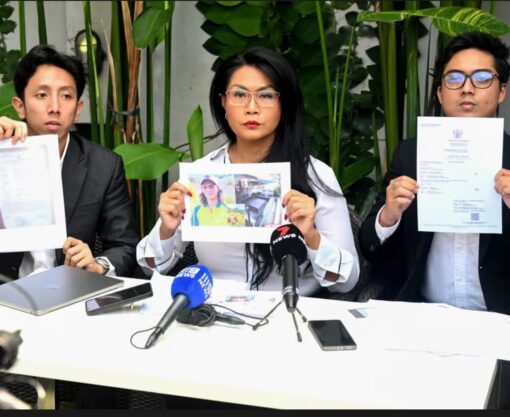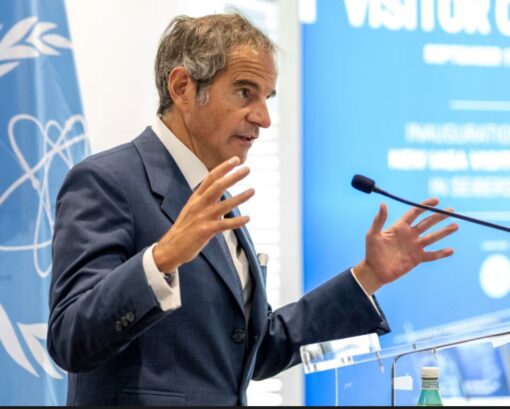An international controversy has erupted after the death of 23-year-old Australian national Byron Haddow in Bali took an unexpected and deeply distressing turn.
What began as a tragic holiday accident has now grown into a diplomatic dispute, as the discovery that Haddow’s body was repatriated to Australia without his heart has raised serious questions about hospital practices, transparency, and the treatment of foreign nationals abroad.
With Indonesian officials denying wrongdoing and Australian authorities pressing for answers, the incident has become a flashpoint for both governments and a source of heartbreak for the grieving family.
Haddow was found dead in May in the plunge pool of his rented villa in Bali. The initial explanation pointed to an accidental drowning, but his family was unsettled from the start by the lack of clarity surrounding the circumstances.

When his body was returned home four weeks later, a second autopsy uncovered the shocking absence of his heart, immediately sparking suspicions of mishandling and igniting claims of organ theft. The discovery set in motion a chain of disputes that continues to unfold, placing the hospital at the center of international scrutiny.
The Bali medical facility where the autopsy was carried out has categorically denied the accusations, stressing that the removal of the heart was a procedural necessity under Indonesian law.
Officials from Prof Ngoerah hospital stated that the organ was retained for forensic analysis requested by local police and that its delayed return to Australia was due to administrative and pathological processing requirements.
A senior hospital representative dismissed any suggestion of organ trafficking, insisting that “the hospital has no interest in withholding the heart” and that speculation was fueled by misinformation.
For Haddow’s family, however, such explanations have done little to ease their anguish. Their legal representative in Bali emphasized that a second autopsy was carried out on the heart without their knowledge or consent, describing the process as both “inhumane” and “unacceptable.”
The family also claims they were asked to pay an additional fee for the heart’s repatriation, a demand that only deepened suspicions and reinforced their determination to pursue justice.
In Queensland, DNA testing is underway to confirm whether the heart that was eventually returned indeed belongs to Haddow. His parents have expressed devastation not only at the loss of their son but also at the manner in which his remains were handled.
For them, the heart of the matter is not merely biological but symbolic—representing their son’s dignity and the respect owed to him even in death. “They are shattered,” their lawyer explained, “yet determined to uncover the truth and hold accountable those responsible.”
The controversy has triggered diplomatic involvement at the highest levels. Australian authorities have confirmed they are providing consular assistance while carefully monitoring the investigation.
Privately, officials have conveyed deep concerns to their Indonesian counterparts, urging full cooperation and clarity. Publicly, they have remained measured, citing privacy obligations, but the underlying message is unmistakable: Australia expects accountability and transparency.
In Bali, meanwhile, the case has revived old debates about the intersection of tourism, healthcare, and trust. The island has long been a popular destination for Australians, yet repeated controversies involving law enforcement and medical systems have eroded confidence.
Allegations of corruption, negligence, and inadequate communication with foreign nationals have surfaced in previous incidents, and this latest case threatens to compound an already fragile reputation. For many observers, the Haddow case is not an isolated episode but a reflection of systemic problems.
Local civil rights advocates have also voiced concern. They argue that the lack of transparent medical procedures, particularly in cases involving foreign nationals, undermines Bali’s credibility as a global tourist hub.
“When a family cannot be certain about what happened to their loved one’s body, it strikes at the very core of human dignity,” one rights advocate said. The call for independent investigations has gained traction, with demands that oversight extend beyond hospital records to include law enforcement handling and cross-border protocols.
At the heart of this dispute is a clash between official denials and personal grief. For the hospital, the matter is framed as a misunderstanding exacerbated by cultural and procedural differences.
For the family, however, it is an unrelenting nightmare—a suspicion that their son’s body may have been desecrated, whether through incompetence or worse. Between these perspectives lies the unresolved question of truth, one that DNA testing may help answer but that trust alone can ultimately settle.
The fallout has also begun to ripple into political discourse in both countries. In Australia, opposition figures have pressed the government to demand more aggressive accountability from Indonesia, suggesting that consular intervention has so far been too cautious.

In Indonesia, officials have pushed back, warning against sensationalism and defending the integrity of their medical professionals. The tension highlights the delicate balance of diplomacy when national sensitivities intersect with personal tragedy.
What remains certain is that the Haddow case has already left a deep scar. For his parents, Robert and Chantal, every unanswered question prolongs their grief.
For the wider public, the incident is a sobering reminder of the risks that can accompany overseas travel, not only in terms of safety but also in the aftermath of tragedy. The outcome of the DNA results may offer closure on one level, but it cannot erase the mistrust that has taken root.
As the investigation continues, the controversy underscores the urgent need for clearer international protocols governing autopsies, repatriations, and the handling of human remains across borders.
Without such safeguards, grieving families may continue to face not only the loss of their loved ones but also the torment of unanswered questions and the suspicion of betrayal.
Until those questions are resolved, the Bali hospital scandal will remain a powerful story of grief, mistrust, and the fight for dignity in the face of unbearable loss.


